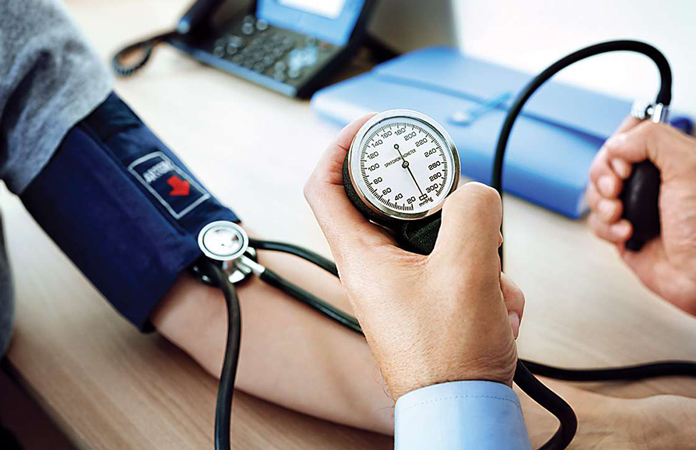What Is High Blood Pressure?

Blood pressure [1] is the force exerted on your arteries as blood flows through them. Your arteries are the blood vessels that carry oxygenated blood from your heart and deliver it to other parts of your body. Blood pressure is determined by the amount of blood your heart pumps, the narrowness of your arteries, and the resistance in the way of blood flow in your arteries. The exact figure fluctuates throughout the day.
Blood pressure is usually written like this: 120/80 mmHg. The number above (120) is called systolic blood pressure. The one below is called diastolic blood pressure (80). Systolic blood pressure is the pressure in your arteries when your heart beats. Diastolic blood pressure is the pressure in your arteries when your heart is at rest (between beats). Normal blood pressure [2] reading is less than 120/80. Above this, the blood pressure is considered elevated.
High blood pressure (also called hypertension) is diagnosed when your blood pressure is consistently well above normal. Unchecked, it can increase your risk of developing serious health problems like heart disease or stroke.
You can have high blood pressure for years without showing any symptoms, even when the numbers are dangerously high. If the blood pressure is extremely high, some people may experience light-headedness, shortness of breath, headache, or nosebleeds. Even then, it is hard to tell you have high blood pressure because the symptoms are vague. This is why doctors recommend checking your blood pressure frequently.
It is not clear what causes high blood pressure. Health experts place high blood pressure into either of two categories based on this: primary (essential) high blood pressure or secondary high blood pressure.













